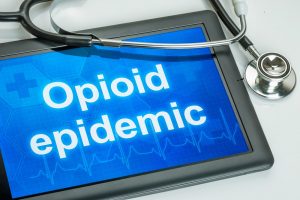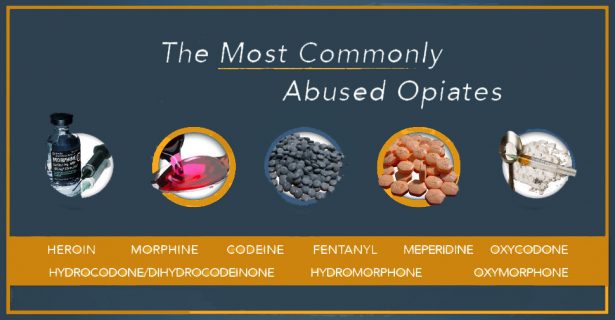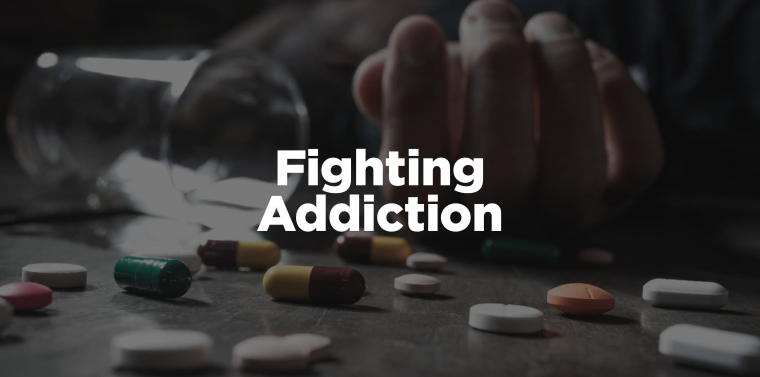Five new states – Kentucky, New Jersey, New Mexico, North Carolina, and Wisconsin – will join Michigan and Pennsylvania in program expansion as overdose deaths increase during COVID-19 pandemic
As the U.S. reckons with record-breaking drug overdose deaths during the COVID-19 epidemic, Michael R. Bloomberg today announced that Bloomberg Philanthropies is making a five-year, $120 million investment to help combat the overdose crisis in the hard-hit states of Kentucky, New Jersey, New Mexico, North Carolina and Wisconsin. This investment brings Bloomberg Philanthropies’ total commitment to the Bloomberg Opioids Overdose Prevention Initiative, which was launched in 2018 with $50 million, to $170 million over eight years.
The Overdose Initiative is expanding at a time when the COVID-19 pandemic has made the overdose epidemic significantly worse. Preliminary data of 2020 from CDC shows the highest number of overdose deaths ever recorded in a single year in U.S. history; more than 93,000 people died representing a 30% increase from the previous 12-month period. CDC data also shows that seventy-five percent of these overdose deaths were opioid related.
Today’s announcement was made at the 4th annual Bloomberg American Health Summit — an event of Bloomberg Philanthropies and the Bloomberg American Health Initiative at Johns Hopkins Bloomberg School of Public Health – which brings together experts and innovators creatively tackling some of the nation’s most pressing public health challenges. The five new states that will join the Overdose Prevention Initiative will each receive $10 million in support over the next five years, with Pennsylvania and Michigan receiving an additional $4 million above the initial 2018 investment throughout the next three years. All of these states have a high burden of overdose deaths, falling within the top 25 states with the highest drug overdose death rates in 2019 and all having increased overdose deaths in 2020.
The program – a partnership with the CDC Foundation, Global Health Advocacy Incubator, Johns Hopkins University, The Pew Charitable Trusts, and Vital Strategies – will support our work including in five new states to scale existing efforts and implement new programs, and to advocate for federal policies to expand treatment access and harm reduction with a goal of accelerating progress in reducing overdose deaths. The state work will include funding for technical assistance, direct services, and embedded staff at government agencies and other organizations to support state and locally led interventions. Decisions on use of these funds will be made in partnership with the state leadership. The program will also continue to support Michigan and Pennsylvania.
 “After seeing real progress in recent years in our fight against the opioid crisis, the pandemic reversed our trends resulting in more tragic overdose deaths,” said North Carolina Governor Roy Cooper. “This partnership will give North Carolina more tools to build a stronger, more resilient system for addiction resources and scale our operations at a time when we need it most.”
“After seeing real progress in recent years in our fight against the opioid crisis, the pandemic reversed our trends resulting in more tragic overdose deaths,” said North Carolina Governor Roy Cooper. “This partnership will give North Carolina more tools to build a stronger, more resilient system for addiction resources and scale our operations at a time when we need it most.”
“The overdose epidemic is one of the worst public health crises we’ve ever faced –254 Americans die every single day from drug overdoses. It’s tearing families apart across the country, and we need bolder, nationwide action, especially from the federal government – but we can’t afford to wait until that happens,” said Michael R. Bloomberg, founder of Bloomberg LP and Bloomberg Philanthropies and WHO Global Ambassador for Noncommunicable Diseases and Injuries, who announced the investment at the Bloomberg American Health Summit today. “Bloomberg Philanthropies is expanding our work to confront the crisis, by building on the data-driven approach we’ve taken in Pennsylvania and Michigan, where we’ve made some important progress. We will now begin working in five more states: Kentucky, New Jersey, New Mexico, North Carolina, Wisconsin. We know we can save lives from this crisis, and we will.”
The prior investment in Michigan and Pennsylvania saw significant results and including lives saved over the past three years. The CDC NCHS vital statistics data showed that prior to the pandemic, Michigan and Pennsylvania both saw decreases in overdose deaths. When COVID-19 infection rates reached their highest points, the CDC data shows both states saw lower increases in overdose deaths than the national average.
The expansion will draw upon learnings from Michigan and Pennsylvania to communicate best practices and create models that can be replicated in the rest of the United States. States will focus on ensuring medication access and availability, engaging local communities and supporting people who use drugs. Additionally, our partners will emphasize a health equity approach to overdoses, as Black Americans have disproportionally been affected by overdose deaths.
The Bloomberg American Health Summit is organized by the Bloomberg American Health Initiative, created in 2016 with a $300 million gift from Bloomberg Philanthropies to the Johns Hopkins Bloomberg School of Public Health. The Initiative works to apply public health tools and strategies to five critical challenges facing American communities—addiction and overdose; environmental challenges; risks to adolescent health; violence; and obesity and the food system. The Bloomberg American Health Initiative has awarded more than 200 fellows full-tuition to the Johns Hopkins Bloomberg School of Public Health, where they then work for at least one-year in their respective organizations. Through this manner, the initiative has supported more than 183 collaborating public health groups.
“Winning the battle against the opioid crisis and helping Kentuckians overcome addiction is a top priority for my administration,” said Kentucky Governor Andy Beshear. “The announcement of this joint venture will allow us to further deliver the services and support our people need to achieve recovery and prevent future pain and suffering.”
“In New Jersey, we’ve made incredible strides in our fight against the opioid epidemic through a comprehensive, data-driven approach, and increasing access to both addiction treatment as well as life-saving harm reduction interventions,” said New Jersey Governor Phil Murphy. “Bloomberg Philanthropies’ investment will allow us to continue our current efforts and implement new, innovative strategies to further support individuals impacted by the opioid crisis. We are determined to help anyone struggling with addiction find the path to recovery and put an end to this epidemic once and for all.”
“In New Mexico, our rapid expansion of telehealth services at the beginning of the pandemic enabled us to increase behavioral health services in remote communities and we have historically been a leader in harm reduction efforts that save lives,” said New Mexico Governor Michelle Lujan Grisham. “But our system of healthcare reimbursement and episode-based interventions has not created the framework we need to support sufficient prevention, treatment and recovery. People who struggle with substance use disorders need strong community-based services and supports to lead independent and productive lives. I am grateful for Bloomberg Philanthropies’ vision and investment in new strategies to defeat the overdose epidemic in our country and look forward to working with them and our partner states to address this growing threat to public health.”
 “The coronavirus pandemic has only underscored and highlighted the crisis we are facing in our state and country with the opioid epidemic, as opioid-related deaths last year exceeded 1,000 in a single year in Wisconsin for the first time,” said Wisconsin Governor Tony Evers. “It’s more critical than ever that we get folks support and access substance use treatment and mental health services. Wisconsin is thrilled to be joining this partnership with Bloomberg Philanthropies as we work tirelessly together to save lives, expand treatment and services, and build a healthier state.”
“The coronavirus pandemic has only underscored and highlighted the crisis we are facing in our state and country with the opioid epidemic, as opioid-related deaths last year exceeded 1,000 in a single year in Wisconsin for the first time,” said Wisconsin Governor Tony Evers. “It’s more critical than ever that we get folks support and access substance use treatment and mental health services. Wisconsin is thrilled to be joining this partnership with Bloomberg Philanthropies as we work tirelessly together to save lives, expand treatment and services, and build a healthier state.”
Additional quotes from participating governors:
Gretchen Whitmer, Governor of Michigan:
“I was proud to join Governor Wolf and Bloomberg Philanthropies for this essential conversation on our ongoing work in the opioid use disorder space,” said Governor Gretchen Whitmer. “In Michigan, we have taken concrete action to invest in healing and recovery. We’ve expanded access to naloxone, set up the Opioid Task Force to address racial disparities of the opioid epidemic, created a statewide Recovery Community Collective to elevate voices of lived experiences and expand recovery supports, and expanded treatments and syringe service programs. We are grateful for the continued support of Bloomberg Philanthropies and hopeful that future settlements with opioid distributors will bring additional resources to Michigan that will address unmet service needs. Together, we will help people, heal our communities, and usher in a new era of prosperity for our state.”
Tom Wolf, Governor of Pennsylvania:
“We’ve seen first-hand how working with government, philanthropic, and private sector partners has saved lives and been instrumental in the fight against the opioid overdose epidemic in Pennsylvania. We will continue working with Bloomberg Philanthropies and our stakeholders to adopt evidence-based policies to successfully reduce overdose deaths in our state. Working together, we will save lives.”
###
About Bloomberg Philanthropies
Bloomberg Philanthropies invests in 810 cities and 170 countries around the world to ensure better, longer lives for the greatest number of people. The organization focuses on five key areas for creating lasting change: the Arts, Education, Environment, Government Innovation, and Public Health. Bloomberg Philanthropies encompasses all of Michael R. Bloomberg’s giving, including his foundation, corporate, and personal philanthropy as well as Bloomberg Associates, a pro bono consultancy that works in cities around the world. In 2020, Bloomberg Philanthropies distributed $1.6 billion.



